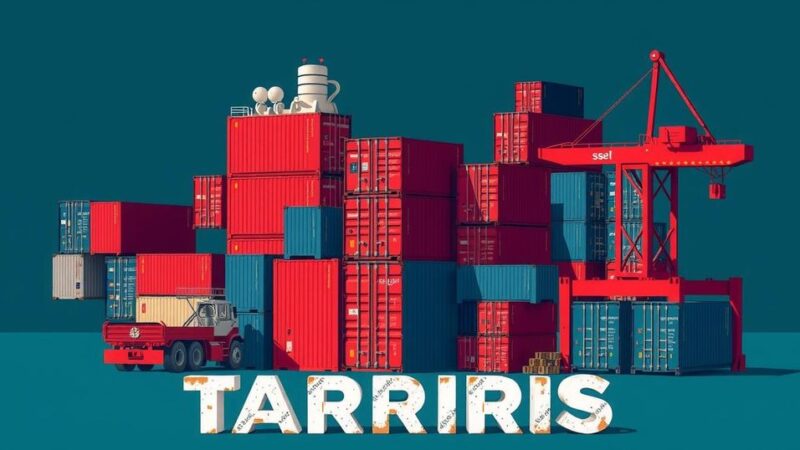This article discusses South Africa’s national budget as a vital instrument for social justice and economic growth. It highlights the ongoing challenges of poverty and unemployment facing the nation, the importance of investing in education and human capital, the need for strategic economic reforms, and the urgency of diversifying revenue sources to secure future growth.
The national budget is often perceived as mere figures recited by the Minister of Finance; however, for many South Africans, it is a crucial tool for addressing historical injustices and creating sustainable job opportunities. A well-constructed budget should effectively address healthcare, housing, education, and infrastructure, while balancing incentives for industries alongside broad grants. Despite this year’s budget facing delays and disagreements over funding, its importance is undeniable.
South Africa’s progress since the end of apartheid has centered around rectifying past inequalities. Initiatives like the Reconstruction and Development Programme have invested heavily in housing and education, resulting in significant improvements in infrastructure and services. The recent National Development Plan 2030 allocates R259 billion for education in the 2023/24 budget to enhance facilities and expand early childhood programs. Nonetheless, a staggering 63% of the population lives below the upper-middle-income poverty line, highlighting the need for renewed focus on enhancing human potential alongside ongoing redress initiatives.
A nation’s budget should aim to uplift its citizens from poverty, fostering economic mobility as a pillar of sustainable development. South Africa’s fiscal strategy emphasizes significant investments in education and job creation; initiatives like the National Student Financial Aid Scheme and the Youth Employment Service are critical for equipping youth. However, current GDP growth remains insufficient, producing only modest job creation, thus failing to alleviate high unemployment rates. Successful global models, such as Singapore’s SkillsFuture and Germany’s dual education system, demonstrate the effectiveness of investing in human capital.
To thrive in the global economy, South Africa must strategically channel investments toward sectors such as manufacturing, industrial capabilities, and technological innovation, with a focus on renewable energy. As China has shown through transformative reforms, harnessing industrial potential is crucial for economic progression. Unfortunately, South Africa’s industrial zones often remain underutilized, necessitating a budget reallocation towards fostering structural reforms and enhanced industrialization for better competitiveness.
Current World Bank projections indicate South Africa’s GDP growth may reach 1.8% this year, with hopes of 2% in the medium term, yet government aspirations target 3%. At these low rates, achieving high-income status could take decades. While social grants act as necessary support for millions, they cannot drive sustainable growth. The recent budget impasse, particularly discussions on increasing VAT to support social programs, illustrates the pitfalls of a consumption-driven fiscal strategy.
Data reveal that a mere 100 companies account for 90% of the tax revenue, underscoring an urgent need for revenue diversification. Expanding beyond taxing as a sole solution is crucial. The National Treasury should explore increasing tariffs, licensing fees, and service charges while considering a dedicated revenue-generation program. Early estimates suggest such a program could yield R500 billion in the Medium-Term Revenue and Expenditure Framework, escalating to R1 trillion annually by the fifth year, ultimately boosting total revenue significantly.
For South Africa’s budget to be effective, it must transcend mere fiscal balances and evolve into a strategic plan for national revitalization. A transition from consumption-based spending to targeted investments in industrialization and innovation presents a viable solution for a brighter economic future.
In conclusion, South Africa’s national budget must serve as a transformative tool that addresses historical disparities and propels job creation. By prioritizing investments in education, human capital development, and sustainable industries, the budget can foster economic mobility and boost competitiveness. Additionally, diversifying revenue sources and focusing on innovative fiscal strategies will pave the way for long-term growth, ensuring that South Africa continues to strive towards a more equitable and prosperous future for all citizens.
Original Source: www.zawya.com






